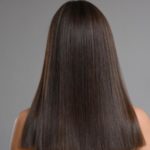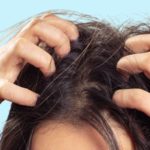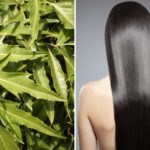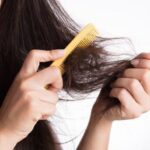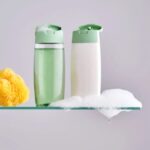Washing your hair is a routine task, but timing is everything! Getting the timing right can bring a host of benefits for your scalp and hair health. For healthy, shiny locks, try washing your hair at these optimal times.
1. Wash Your Hair an Hour After Waking Up
Many people like to wash their hair first thing in the morning as it feels refreshing and energizing. However, this can be a risky habit. Your blood circulation is still stabilizing during this time, and washing your hair with cold water can stimulate blood flow to the brain, potentially causing headaches.
It’s also not ideal to wash your hair in the evening as it may not fully dry, leading to a cold and an irritated scalp. Instead, the best time to wash your hair is about an hour after you wake up. Use warm water, which is gentler on your scalp and helps improve blood circulation, nourishing your hair and adding shine.
2. How Often Should You Wash Your Hair?
For those with normal scalps, it’s recommended to wash your hair every other day or every two days. Overwashing can dry out your scalp and lead to increased dandruff. If you have an oily scalp, you may need to wash your hair more frequently to prevent excess oil buildup, which can clog hair follicles and lead to hair loss.
3. Pre and Post-Hair Washing Tips
Dry Your Hair Before Bed
Before going to sleep, remember to blow-dry your hair to prevent damage, encourage thicker hair growth, and keep colds and hair loss at bay.
Avoid Brushing Your Hair When It’s Wet
After washing your hair, avoid brushing it while it’s still wet. Your pores are open, and brushing can cause scalp damage and hair breakage.
Don’t Scratch Your Scalp with Your Nails
Instead of using your nails, gently massage your scalp with your fingertips while shampooing. This will relax your scalp and improve blood circulation without causing damage.
Avoid Pouring Shampoo Directly Onto Your Scalp
Pour shampoo into your palms and lather it up before applying it to your hair and scalp. This ensures a thorough cleanse and prevents chemical residue buildup.
Keep Water Temperature Around 40°C
Very hot or very cold water can be harsh on your hair and scalp. Aim for a temperature of around 40°C, which gently opens pores and helps remove dirt and oil without irritation.
Avoid Washing Your Hair During Your Period
Washing your hair during your period can cause fatigue due to lowered immunity. For those with long hair, the dampness can also lead to a heavy head feeling.
Don’t Wash Your Hair When Extremely Hungry or Full
Washing your hair when your stomach is empty or too full can cause digestive issues and may even lead to serious complications.
Avoid Washing Your Hair When You Have a Fever
Washing your hair when you’re sick can lower your body temperature further and worsen your condition. This is especially important for children and the elderly.
Don’t Wash Your Hair Right After Dinner
Washing your hair right after a meal can interfere with digestion and nutrient absorption. It may even lead to heart and brain blood flow issues.
Avoid Washing Your Hair After Drinking Alcohol
Alcohol can cause dehydration, and washing your hair after drinking can lead to dizziness and nausea. If you have a heart condition, avoid using cold water, as it can be a dangerous combination.
Don’t Wash Your Hair Right After Exercising
If you enjoy outdoor exercises like running or swimming, avoid washing your hair immediately afterward. Give your body time to rest and cool down first, then shower and wash your hair.
Now you know the secrets to healthy, shiny hair! Keep these tips in mind, and don’t forget to bookmark this article for easy reference. Your hair will thank you!
5 Hair Care Habits That Seem Helpful But Actually Cause More Harm Than Good
Taking care of your hair is about more than just aesthetics; it’s about maintaining scalp health. Are you guilty of common mistakes such as over-shampooing or brushing too vigorously? Discover the five harmful misconceptions that could be causing your hair to shed more than usual, and learn how to effectively remedy the situation.
























